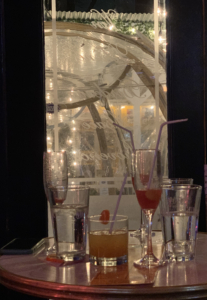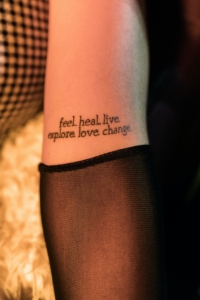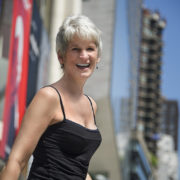BodyLogos Blog
Welcome to the BodyLogos blog. Here’s where you’ll get your dose of alignment and balance with grace. (Sign up here to join 1,000 other blog subscribers.)
Redefining Strength
I want to change our perception of strength. Strength is the ability to meet resistance and influence an outcome without compromising ourselves. And we already have it.
Strength is not an attribute; it’s a state of being. Gladiators, bodybuilders, and football players demonstrate strength through brute force, sheer willpower, muscle mass, and relentless pursuit. But we’re also quick to identify dancers and martial artists as strong. Their medium taps into a sense of vulnerability, balance, alignment, controlled power, and grace—but no one can deny their strength. Strength may look different on each of us, but it is an inherent part of who we are.
You are not weak by nature; you are stronger than you think. Your strength is not something you need to kill yourself to gain—it is already within you, waiting to be excavated. The key is to stop chasing something you already have and tap into it, so you can manifest that strength in your everyday life.
Because we don’t think we’re strong, we approach resistance with the idea that we’re not enough. We throw everything we have at it and push past our physical, mental, and emotional limitations. We see strength as domination, but it’s not.
When you learn to listen to your body’s divine wisdom, you cultivate a sense of where your body is developing tension instead of standing in its strength. You end the vicious cycle of unrealistic expectations, injury, and self-criticism and learn how to consciously embrace responsible growth. You stop compartmentalizing your strength into emotional, physical, and mental pieces and operate from the strength of your being at all times.
You learn how to align yourself with gravity—instead of working against it—so you can channel your strength to meet life’s resistance. As you meet resistance with equal parts power and alignment, you transform tension into strength
As in the sword dance above, the power lies in bringing just the right amount of force—not too little and not too much. By meeting the sword’s weight, I meet gravity. I am tapped into a larger source of energy, free of tension, and discover a strength that is wholly and uniquely mine.





 About Tammy Wise
About Tammy Wise
Feeling the Pinch of the Holidays?
by Tammy WiseLet It Direct Your New Year’s Resolution
The N YC craft fairs are an art-filled, outdoor, community experience that gets everyone in the holiday spirit. It is a unique and wonderful holiday shopping frenzy. I find myself dashing through them between clients, at the end of my work days, or over the weekend to get all my holiday needs in order. It’s all consuming and I love it!!
YC craft fairs are an art-filled, outdoor, community experience that gets everyone in the holiday spirit. It is a unique and wonderful holiday shopping frenzy. I find myself dashing through them between clients, at the end of my work days, or over the weekend to get all my holiday needs in order. It’s all consuming and I love it!!
The holidays, however, can make us dizzy with fatigue, unsettled by the all-consuming whirlwind, and overwhelmed with what it will take to recover our best selves to kickstart 2019!
This mayhem is the perfect setting to recognize the root of our year-round triggers.
Yes, there is an intrinsic message in our tensions expression!
When overwhelm turns into physical pain our body is trying to tell us something.
The body uses location and pain as its sentence structure to communicate. While your brain remembers an event, it’s your body that harbors the emotions that accompanied an event. Emotional tension patterns settle in the areas of the body that animate the emotion. And it can carry these emotional tension patterns around indefinitely if you don’t listen to its cry.
Unresolved emotions create tension that distort your posture. That tension then gets triggered into reactive expressions when under pressure. The emotional outbursts, physical pain, even sickness that interferes with your joy for living is actually a low-grade drain that is always under the surface!
Locations of emotional expression commonly agitated over the holidays:
Emotional anguish around social pressures and family gatherings at holiday time are undeniable. It’s important to remember that the emotions that surface under pressure are always lying under our smiles of pleasantry. And their low-grade energy consumption can draw us further and further away from our smiles of truth.
Resolve your body’s cry in 2019! Correct your posture and consider your emotional misalignments.
High pressure holiday situations that escalate your tension into tantrum and spasm excavates the work that needs to be addressed in your life’s story. Recognize the root of your tension so you can weed them out in 2019.
Have a liberating new year!
The BodyLogos Practice helps you understand where specific emotions get trapped in your bodies’ soft tissue. Developed by me––Tammy Wise––B’way dancer turned Tao Minister. I use the emotional intelligence of posture to transform tension into strength.
In my new book/3D-video learning system, The Art of Strength: Sculpt the Body ~ Train the mind. I walk you through mind-body techniques that will help you release tension and build strength simultaneously.
Learn more…